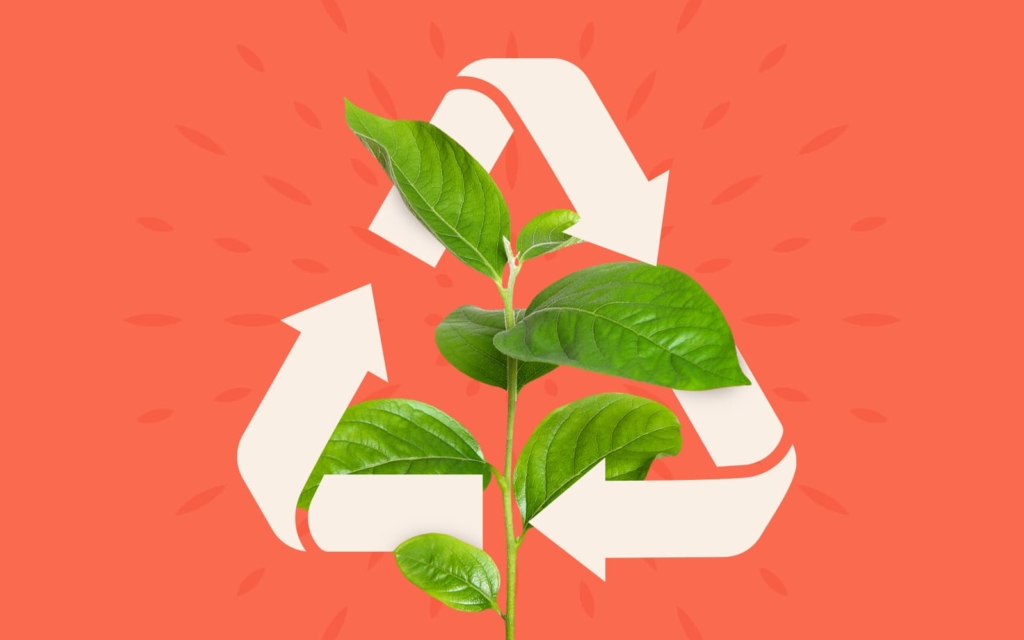
It’s Time for Your CPG to Enact Sustainability Goals — Here are 2 Brands Leading the Charge
February 28, 2022
Packaging sustainability and recyclability continue to be at the forefront of food and beverage brands’ climate-friendly initiatives. Why? Because the food industry as a whole typically exploits so many materials. But how long can this continue?
It’s not enough to simply mention sustainability any more. It’s time for CPG companies to back it up. We’re once again in the Paris Climate Agreement as global warming grows more dire by the day.
Instead of empty talk, many CPG companies are taking action. They’re committing to limit CO2 emissions to 1.5°C by 2030, per the Paris Climate Agreement. Organizations like the Ellen Macarthur Foundation, Science Based Targets, and the Recycling Leadership Council are even tracking companies’ emissions numbers. They know accountability is paramount.
All to say, this is a moment for your CPG company to take action, too. Think there’s too much red tape or not enough resources to commit to sustainability? If these two behemoth food and bev brands can do it, so can you.
Recycling and Greenwashing Are Not the Answers
Let’s get something out in the open. There’s more — much more — to meaningful change that will better the environment than recyclable materials and packaging. Recycling alone will never achieve the results needed to slow down climate change.
Of course, creating recyclable and/or sustainable packaging for your company’s products is crucial. But ideally, your brand should embrace corporate social responsibility and sustainability holistically. It’s a mindset that should affect everything you’re doing.
For example, look beyond that actual pack itself to the larger supply chain it’s a part of. Lessening the steps in your supply chain will reduce overall emissions, which helps reach that all-important goal of abating global warming.
Skeptical that corporate social responsibility can be more than an oxymoron? Consider brands like Allbirds, Burt’s Bees, Patagonia, and TOMS. All of these companies (and more) have led with sustainability from the get-go — and they’re undeniably successful.
And please, no greenwashing. Fighting climate change is too grave to waste time fooling consumers with environmentally friendly claims that aren’t transparent or wholly true.
Business Reasons for CPGs to Target Sustainability
There are motivations beyond altruism to care about heading off global warming. Study after study shows sustainability connects with consumers on a personal level. Additionally, more and more people point to a brand’s sustainability as a key part of their buying decisions. Case in point, 44% of consumers say they care more about environmental issues today than they did just one year ago.
But it’s not only consumers who care about the environment. According to the Consumer Brands Association, investors and employees are driving change and commitment to sustainability as well.
Your CPG company should hold itself accountable before your loyal customers and employees force you to do so.
Two CPG Companies Committed to Sustainable Packaging and More
There are a lot of companies in the food and beverage industry and beyond that are working toward sustainability goals. In fact, 80% of the 25 largest CPG brands are working to develop fully recyclable packaging by 2030. That’s in addition to any CO2 reduction promises they might be making.
Hershey’s and Pepsi, two companies we’ll examine below, are great examples of large CPGs working toward specific sustainability objectives. As you might suspect, it can be difficult for large, established brands like these to be agile and make big changes. But their commitment to change should be a guiding light. Let them serve as examples of how possible it is for your CPG to embrace meaningful sustainability goals while remaining profitable.
1. Hershey’s Is Eliminating Hard-to-Recycle Packaging Materials
The Hershey Company has been making high-quality, affordable snacks for more than 125 years. They’re a CPG powerhouse. And of course, chocolate is their signature offering.
The company is also committed to sustainability. Many of their candy bars are currently wrapped in plastic. But that won’t be the case by 2023. By the end of this year, Hershey’s will eliminate hard-to-recycle materials from all packaging.
They’re not just making their packaging more recyclable. Hershey’s has also reduced the weight of their packaging by 25 million pounds. And they did it five full years ahead of schedule. Reducing the amount of materials they use affects the supply chain. Hershey’s products are now cheaper to manufacture as well as emitting less CO2 in the process.
2. Pepsi Will Only Use Recycled Plastic Bottles
Pepsi-Cola has been on the market since 1893. Yep, almost 130 years of sodas. Today, PepsiCo is a giant in the food industry.
Yes, the plastic bottles Pepsi uses for their soft drinks are already recyclable. But the company is going a step further. By the end of 2022, their packaging materials for plastic bottles will use 100% recycled plastics (rPET) for all Pepsi Zero Sugar products in the United States and many other products in Europe.
They’re also living out their corporate social responsibility values holistically. Pepsi is repurposing used chip packs to build artificial turf soccer fields around the globe starting this year.
This is Your CPG Company’s Call to Action
Corporate social responsibility initiatives, sustainability measures, environmentally friendly policies — these are no longer nice-to-haves for CPG companies like yours. Frankly, they haven’t been for a while. Taking care of the planet is a must-have for any responsible, forward-looking firm.
Start mapping out your company’s plan. Identify your goals along with steps you can take today, this month, and this year to create a more climate-friendly brand. Ultimately the question remains, how will your food and bev brand actively contribute to the sustainability efforts at the forefront of today’s consumerism?


